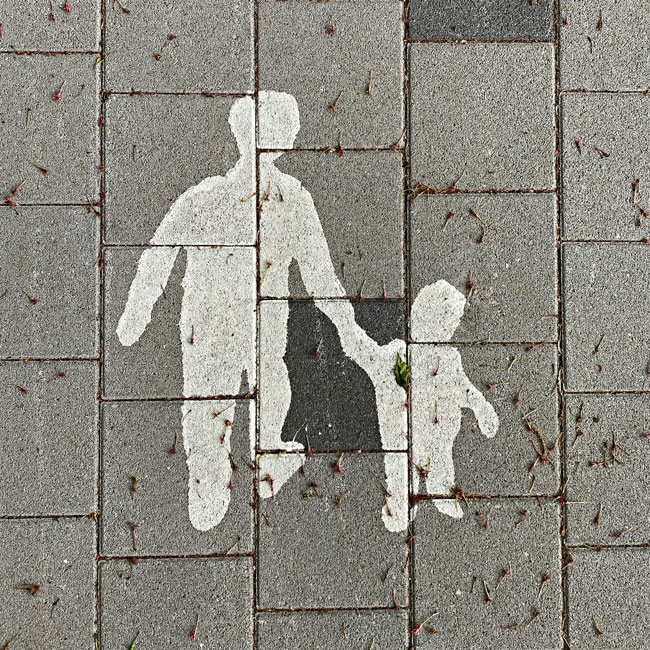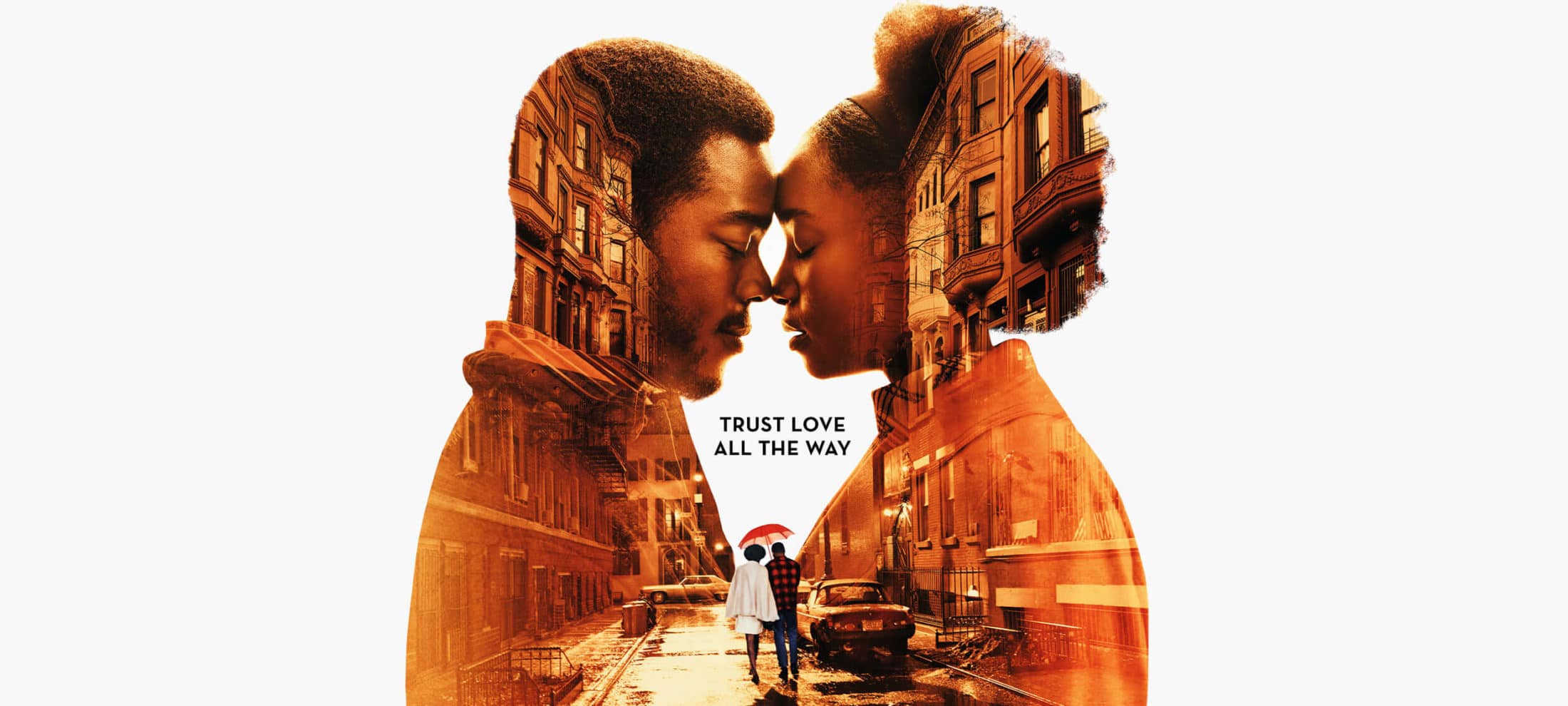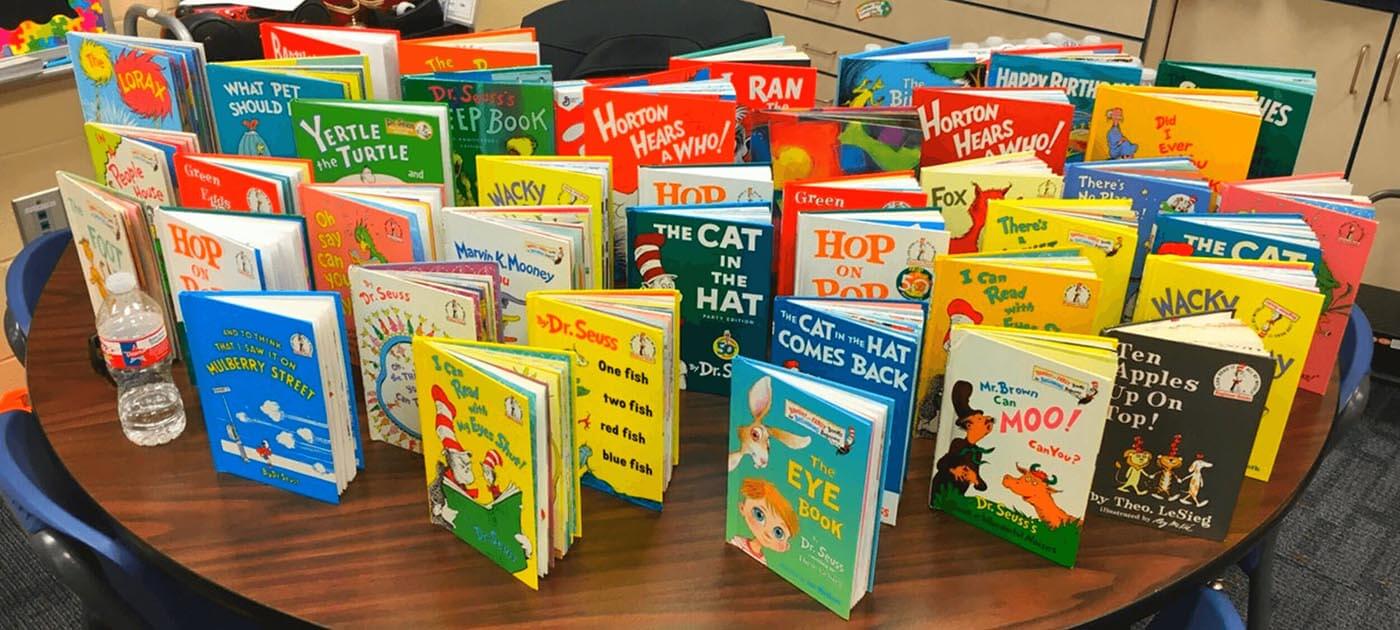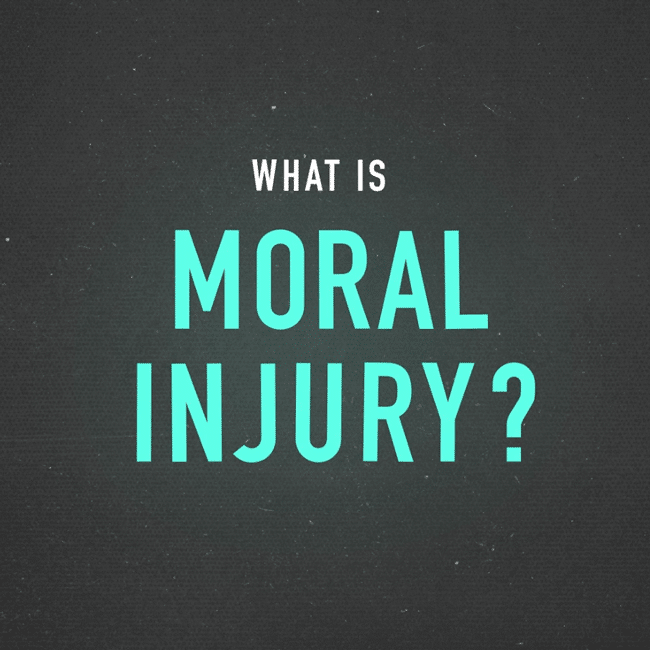Four causes of ethical failure, and how to correct them

Four causes of ethical failure, and how to correct them
Opinion + AnalysisBusiness + LeadershipSociety + Culture
BY Tim Dean 30 JUL 2025
Sometimes good people do bad things. It’s important to understand why so we can respond ethically.
The news is filled with stories of everyday people doing bad things. A small business owner might underpay workers, a senior manager in a corporation could be cutting corners to improve profit margins, or a protester damages a precious artwork to promote their cause.
It’s natural to feel outrage when we hear about incidents like this. We might condemn the perpetrator and want to see them punished. But not every wrongdoer is a moustache twirling villain. Often, they’re otherwise good people who are perfectly ethical in other aspects of their lives. This makes their bad behaviour especially puzzling.
If we don’t understand what motivates their behaviour, then we risk responding in a way that won’t fix the problem, or might even make things worse. Here are four different reasons why good people do bad things and some ways to prevent or correct them.
1. Weakness of will
Temptation is everywhere. Sometimes we know something is wrong, but we are tempted to do it anyway because we know doing so will benefit us. The small business owner might be tempted to increase their profits by paying their staff below minimum wage. Or your neighbour could be tempted to poison a beautiful old tree that is protected by council because it’s blocking their view.
When we’re faced with temptation, and if we think we can get away with it, it takes willpower to stop us from doing the wrong thing. Yet, all too often, willpower is insufficient to stop us. This weakness of will, called “akrasia” by Aristotle, is one of the main causes of unethical behaviour.
There are two dimensions to weakness of will: the first is desire, which sits in tension with willpower. As such, one way to prevent weakness of will is to cultivate the virtue of self-control. However, it may not be prudent to rely on self-control entirely, given that it’s an all-too finite resource for many of us.
So, the other approach is to reduce temptation. That could mean removing the source of the temptation from our presence, like hiding the chocolate cookies in the cupboard rather than leaving them out on the kitchen table. It can also mean increasing accountability, such as through transparency and oversight. We’re less likely to be tempted to do something wrong if we feel we’re unlikely to get away with it.
2. Moral blindness
All too often, people simply don’t see that what they’re doing is wrong. Like the banker who is so focused on earning a commission that they turn a blind eye to money laundering. Or the manager who doesn’t realise that they keep unfairly promoting staff who have a similar ethnicity to them.
This is moral blindness. Sometimes it might be excusable, like if they had no way of knowing that they were causing harm. But, ignorance is not always an excuse. We must all be mindful of how our actions affect others, and we can’t avoid responsibility if we could have reasonably anticipated that our actions were unethical.
There’s also the problem of wilful obliviousness, which is where we avoid thinking too hard about what we’re doing because, deep down, we know it could be wrong. It’s like refusing to watch an exposé on animal abuse in farms because we don’t want to stop eating meat.
This is also a common phenomenon in workplaces, where workers can become distracted by chasing KPIs or boosting profits, and ethical concerns fall into the background. The Banking Royal Commission found many instances of wrongdoing because many financial institutions had a culture that rewarded sales over all else.
This is the danger of unthinking custom and practice. When people operate in a culture that is highly conformist, with incentives that reward unethical behaviour, they are less likely to reflect on or question whether what they’re doing is ethical.
One way to combat moral blindness is to create a culture of curiosity, where everyone is encouraged to reflect on and openly question their practices as well as the decisions of leadership. Another preventative is for organisations to be mindful of the goals they set and ensure they are not creating incentives to act unethically.
3. External constraint
Sometimes our hands are tied, and we’re forced to do something we know is wrong. In some cases, there might be nothing we can do to avoid the bad outcome, like a police officer who is forced to shoot someone who is threatening other people’s lives. In other cases, it’s because we’re faced with a moral dilemma, like choosing between keeping a promise to a friend or breaking that promise so they can get the help they need.
External constraints can lead to dirty hands, where someone is forced to do something bad to prevent something even worse from happening. In extreme cases, it can also lead to moral injury, which can cause them to lose faith in their own moral core and become detached or despondent.
An obvious way to prevent external constraints from leading to unethical behaviour is to remove the constraints themselves. That could involve anticipating problematic situations before they occur or making sure that people always have options to do the right thing. However, that’s not always possible. If so, then we should recognise that sometimes people do bad things because they had no other choice, which might result in us being more lenient when it comes to punishing them or correcting the behaviour.
Another way to deal with the problem of external constraints is to cultivate moral courage and moral imagination. Bolstering moral courage makes it easier for people to do the right thing, even when they know doing so might come at a cost. Moral imagination, on the other hand, helps people to expand their possible range of actions, and the chance they might find a way to get around the constraints.
4. Ethical disagreement
When an activist throws paint at a beloved artwork to protest the impact of fossil fuels on climate change, or your local childcare centre refuses to accept children who have not been vaccinated, you might think they’re doing something wrong, even though they are doing what aligns with their deepest moral principles.
We live in a highly diverse world, with countless different moral perspectives and multiple ethical frameworks to guide our behaviour. Until such time that humanity can come together and agree on a common set of values and principles to direct everyone’s behaviour, then ethical disagreement will persist.
One of the compromises we make to live in a liberal society is that we will tolerate some behaviour we believe is unethical, as long as others tolerate our behaviour that they consider to be unethical. Of course, there are limits to tolerance, but it means there will inevitably be cases where two different moral perspectives will clash. The danger is that it’s very easy to judge someone as being a bad person when they are actually acting out of an ethical motive.
This is not to say we can’t criticise them for doing it. Instead, the existence of ethical disagreement highlights the need to create spaces for people to engage with diversity in a safe and constructive way, and to know when we should tolerate or oppose someone else’s actions. If we’re able to recognise that someone is acting out of principle rather than malice, we might engage with them differently compared to going straight to condemnation or punishment.

BY Tim Dean
Dr Tim Dean is a public philosopher, speaker and writer. He is Philosopher in Residence and Manos Chair in Ethics at The Ethics Centre.
Ethics in your inbox.
Get the latest inspiration, intelligence, events & more.
By signing up you agree to our privacy policy
You might be interested in…
Opinion + Analysis
Business + Leadership, Climate + Environment, Society + Culture
Overcoming corruption in Papua New Guinea
Opinion + Analysis
Society + Culture
How The Festival of Dangerous Ideas helps us have difficult conversations
Opinion + Analysis
Business + Leadership
Georg Kell on climate and misinformation
Opinion + Analysis
Business + Leadership
Why do good people do bad things?
There is more than one kind of safe space

There is more than one kind of safe space
Opinion + AnalysisSociety + CultureRelationships
BY Tim Dean 21 JUL 2025
We’ve heard a lot about safe spaces recently. But there are two kinds of safe space, and one of them has been neglected for too long.
Like many universities today, new students at Western Sydney University are invited to use a range of campus facilities, such as communal kitchens, prayer rooms, parents’ rooms as well as Women’s Rooms and Queer Rooms. But there’s something that sets the latter two apart from the other facilities.
WSU describes the Women’s Room as “a dedicated space for woman-identifying and non-binary students, staff and visitors”, saying they are provided in an effort to “provide a safe space for women on campus”. The Queer Room is described as “a safe place where all people who identify as lesbian, gay, bisexual, trans, queer, or otherwise sex and/or gender diverse can relax in an accepting and inclusive environment.” The operative term in both descriptions is “safe”.
We have heard a lot about such “safe spaces” over the past several years. Yet as the number and type of safe spaces has grown, so too has the concept of safety expanded, particularly within United States universities. Many students now expect the entire campus to effectively operate as a safe space, one where they can opt out of lectures that include subjects that could trigger past traumas, raise issues they believe are harmful or involve views they find morally objectionable. The notion of safety has also been invoked to cancel lectures on university campuses by reputable academics because some students on campus claim the talk would make them feel unsafe.
In response, safe spaces have been criticised for shutting down open discourse about difficult or conflicted topics, particularly because such discourse has been seen as an essential part of higher education. Lawyer Greg Lukianoff and psychologist Jonathan Haidt have also argued that safe spaces coddle students by shielding them from the inevitable controversies and offences that they will face beyond university, contributing to greater levels of depression and anxiety.
However, all of the above refers to just a single kind of safe space: one where people are safe from possible threats to their wellbeing.
In a complex and diverse world, where people of different ethnicities, religions, political persuasions and beliefs are bound to mingle, there are good reasons to have dedicated places to where individuals can retreat, spaces where they know they will be safe from prejudice, intolerance, racism, sexism, discrimination or trauma.
But there is another kind of safe space that is equally important: one where people are safe to express themselves authentically and engage in good faith with others around difficult, controversial and even offensive topics.
While safe from spaces might be necessary to shield the vulnerable from harm in the short term, safe to spaces are necessary to help society engage with, and reduce, those harms in the long term.
And while much of the focus in recent years has been on creating safe from spaces, there are those who have been working hard to create more safe to spaces.
A safe to space
More than thirty years ago, philosopher and Executive Director of The Ethics Centre, Dr Simon Longstaff AO, set up a Circle of Chairs in Sydney’s Martin Place and invited passers-by to sit down and have a conversation. In doing so, he effectively created a powerful safe to space. It was so successful that this model of conversation remains at the heart of how The Ethics Centre operates to this day, through its range of public facing events including Festival of Dangerous Ideas, The Ethics Of…, and In Conversation.
But the success of The Ethics Centre’s events – similar to any other safe to space – is that they don’t just operate according to the norms of everyday conversation, let alone the standards of online comment sections or social media feeds. In these environments, the norms of conversation make it difficult to genuinely engage with challenging or controversial ideas.
In conversations with friends and family, we often feel great pressure to conform with the views of others, or avoid topics that are taboo or that might invite rebukes from others. In many social contexts, disagreement is seen as being impolite or the priority is to reinforce common beliefs rather than challenge them.
In the online space, conversation is more free, but it lacks the cues that allow us to humanise those we’re speaking to, leading to greater outrage and acrimony. The threat of being attacked online causes many of us to self-censor and not share controversial views or ask challenging questions.
For a safe to space to work, it needs a different set of norms that enable people to speak, and listen, in good faith.
These norms require us to withhold our judgement on the person speaking while allowing us to judge and criticise the content of what they’re saying. They encourage us to receive criticism of our beliefs while not regarding them as an attack on ourselves. They prompt us to engage in good faith and refrain from employing the usual rhetorical tricks that we often use to “win” arguments. These norms also demand that we be meta-rational by acknowledging the limits of our own knowledge and rationality, and require us to be open to new perspectives.
Complementary spaces
It takes work to create safe to spaces but the rewards can be tremendous. These spaces offer blessed relief for people who all-too-often hold their tongue and refrain from expressing their authentic beliefs for fear of offence or the social repercussions of saying the “wrong thing”. They also serve to reveal the true diversity of views that exist among our peers, diversity that is often suppressed by the norms of social discourse. But, perhaps most importantly, they help us to confront difficult and important issues together.
Crucially, safe to spaces don’t conflict with safe from spaces; they complement them. If we only had safe from spaces, then many difficult topics would go unexamined, many sources of harm and conflict would go unchallenged, new ideas would be suppressed and intellectual, social and ethical progress would suffer.
Conversely, if we only had safe to spaces, then we wouldn’t have the refuges that many people need from the perils of the modern world; we shouldn’t expect people to have to confront difficulty, controversy or trauma in every moment of their lives.
It is only when safe from and safe to are combined that we can both protect the vulnerable from harm without sacrificing our ability to understand and tackle the causes of harm.
This article has been updated from its original publication in August 2022.

Ethics in your inbox.
Get the latest inspiration, intelligence, events & more.
By signing up you agree to our privacy policy
You might be interested in…
Opinion + Analysis
Relationships, Society + Culture
5 Movies that creepily foretold today’s greatest ethical dilemmas
Big thinker
Relationships
Seven Female Philosophers You Should Know About
Opinion + Analysis
Relationships, Society + Culture
The problem with Australian identity
WATCH
Relationships
What is the difference between ethics, morality and the law?
BY Tim Dean
Dr Tim Dean is a public philosopher, speaker and writer. He is Philosopher in Residence and Manos Chair in Ethics at The Ethics Centre.
Making sense of our moral politics

Making sense of our moral politics
Opinion + AnalysisPolitics + Human RightsSociety + Culture
BY Tim Dean 17 JUN 2025
Want to understand politics better? Want to make sense of what the ‘other side’ is talking about? Then take a moment to reflect on your view of an ideal parent.
What kind of parent are you – either in reality or hypothetically? Do you want your children to build self-reliance, discipline, a strong work ethic and steel themselves to succeed in a dog-eat-dog world? Do you want them to respect their elders, which means acknowledging your authority, and expect them to be loyal to your family and community? Do you want them to learn to follow the rules, through punishment if necessary, knowing that too much coddling can leave them lazy or fragile?
Or do you want to nurture your children, so they feel cared for, cultivating a sense of empathy and mutual respect towards you and all other people? Do you want them to find fulfilment in their lives by exploring their world in a safe way, and discovering their place in it of their own accord, supported, but not directed, by you? Do you believe that strictness and inflexible rules can do more harm than good, so prefer to reward positive behaviour rather than threaten them with punishment?
Of course, few people will fall entirely into one category, but many people will feel a greater affinity with one of these visions over the other. This, according to American cognitive linguist, George Lakoff, is the basis of many of our political disagreements. This, he argues, is because many of us intuitively adopt a morally-laced metaphor of the government-as-family, with the state being the parents and the citizens the children, and we bring our preconceived notions of what a good family looks like and apply them to the government.
Lakoff argues that people who lean towards the first description of parenthood described above adopt a “Strict Father” metaphor of the family, and they tend to lean conservative or Right wing. Whereas people who lean towards the second metaphor adopt a “Nurturant Parent” metaphor of the family, and tend to lean more progressive or Left wing. And because these metaphors are so embedded in our understanding of the world, and so invisible to us, we don’t even realise that we see the world – and the role of government – in a very different light to many other people.
Strict Father
The Strict Father metaphor speaks to the importance of self-reliance, discipline and hard work, which is one reason why the Right often favours low taxation and low welfare spending. This is because taxation amounts to taking away your hard-earned money and giving it to someone who is lazy. Remember Joe Hockey’s famous “lifters and leaners” phrase?
The Right is also more wary of government regulation and protections – the so-called “nanny state” – because the Strict Father metaphor says we should take responsibility for our actions, and intervention by government bureaucrats robs us of our ability to make decisions for ourselves.
The Right is also more sceptical of environmental protections or action against climate change, because they subvert the natural order embedded in the Strict Father, which places humans above nature, and sees nature as a resource for us to exploit for our benefit. Climate action also looks to them like the government intervening in the market, preventing hard working mining and energy companies from giving us the resources and electricity we crave, and instead handing it over to environmentalists, who value trees more than people.
Implicit in the Strict Father view is the idea that the world is sometimes a dangerous place, that competition is inevitable, and there will be people who fail to cultivate the appropriate virtues of discipline and obedience to the rules. For this reason, the Right is less forgiving of crime, and often argues that those who commit serious crimes have demonstrated their moral weakness, and need to be held accountable. Thus it tends to favour more harsh punishments or locking them away, and writing them off, so they can’t cause any more harm.
Nurturant Parent
From the Nurturant Parent perspective, many of these Right-wing views are seen as either bizarre or perverse. The Nurturant Parent metaphor speaks to the need to care for others, stressing that everyone deserves a basic level of dignity and respect, irrespective of their circumstances.
It also acknowledges that success is not always about hard work, but often comes down to good fortune; there are many rich people who inherited their wealth and many hard working people who just scrape by, and many more who didn’t get the care and support they needed to flourish in life. For these reasons, the Left typically supports taxing the wealthy and redistributing that wealth via welfare programs, social housing, subsidised education and health care.
The Left also sees the government as having a responsibility to protect people from harm, such as through social programs that reduce crime, or regulations that prevent dodgy business practices or harmful products. Similarly, it believes that much crime is caused by disadvantage, but that people are inherently good if they’re given the right care and support. This is why it often supports things like rehabilitation programs or ‘harm minimisation,’ such as through drug injecting rooms, where drug users can be given the support they need to break their addiction rather than thrown in jail.
Implicit in the Nurturant Parent metaphor is that the world is generally a safe and beautiful place, and that we must respect and protect it. As such, the Left is more favourable towards environmental and climate policies, even if they mean that we might have to incur a cost ourselves, such as through higher prices.
Bridging the gap
Naturally, there’s a lot more to Lakoff’s theory than is described here, but the core point is that underneath our political views, there are deeper metaphors that unconsciously shape how we see the world.
Unless we understand our own moral worldview, including our assumptions about human nature, the family, the natural order or whether the world is an inherently fair place or not, then it’s difficult for us to understand the views of people on the other side of politics.
And, he argues, we should try to bridge that gap and engage with them constructively.
Part of Lakoff’s theory is that we absorb a metaphor of the family from our own experience, including our own upbringing and family life. That shapes how we make sense of things, like crime, the environment or even taxation policy. So we are already primed to be sympathetic towards some policies and sceptical of others. When we hear a politician speak, we intuitively pick up on their moral worldview, and find ourselves either agreeing or wondering how they could possibly say such outrageous things.
As such, we don’t start as entirely morally and political neutral beings, dispassionately and rationally assessing the various policies of different political parties. Rather, we’re primed to be responsive to one side more so than the other. As such, we don’t really choose whether to be Left or Right, we discover that we already are progressive or conservative, and then vote accordingly.
The difficulty comes when we engage in political conversation with people who hold a different metaphorical understanding of the world to our own. In these situations, we often talk across each other, debating the fairness of tax policy or expressing outrage at each others naivety around climate change, rather than digging deeper to reveal where the real point of difference occurs. And that point of difference could buried underneath multiple layers of metaphors or assumptions about the role of the government.
So, the next time you find yourself in a debate about tax policy, social housing, pill testing at music festivals or green energy, pause for a moment and perhaps ask a deeper question. Ask whether they think that success is due more to luck or hard work. Or ask whether the government has a responsibility to protect people from themselves. Or ask them which is more important: humanity or the rest of nature.
By pivoting to these deeper questions, you can start to reveal your respective moral worldviews, and see how they connect to your political views. You might not convince anyone to adopt your entrenched moral metaphors, but you might at least better understand why you each have the views you have – and you might not see political disagreement as a symptom of madness, and instead see it as a symptom of the inevitable variation in our understanding of the world. That won’t end your conversation, but it might start a new one that could prove very fruitful.

BY Tim Dean
Dr Tim Dean is a public philosopher, speaker and writer. He is Philosopher in Residence and Manos Chair in Ethics at The Ethics Centre.
Ethics in your inbox.
Get the latest inspiration, intelligence, events & more.
By signing up you agree to our privacy policy
You might be interested in…
READ
Society + Culture
6 dangerous ideas from FODI 2024
Opinion + Analysis
Relationships, Society + Culture
The Bear and what it means to keep going when you lose it all
Opinion + Analysis
Politics + Human Rights, Health + Wellbeing, Society + Culture
I changed my mind about prisons
Opinion + Analysis
Politics + Human Rights
The Constitution is incomplete. So let’s finish the job
Ask an ethicist: How should I divvy up my estate in my will?

Ask an ethicist: How should I divvy up my estate in my will?
Opinion + AnalysisRelationships
BY Tim Dean 12 JUN 2025
I’m in the process of writing my will, but I’m unsure about how I should split my estate among my children. Should it be divided equally? Or should I give more to one of my children, who needs it more?
It’s hard enough avoiding thinking about our own mortality, but then we also have to contemplate the ructions that could erupt after we depart the mortal coil. Is that fair? Probably not. But at least you can attempt to be fair in how you dole out your mortal leftovers.
The good news is that philosophers have spent centuries coming up with ways to carve up a bundle of stuff – whether that’s a pie, a national budget or a deceased estate – and distribute it fairly. The bad news is they haven’t settled on just one right way to do it. Still, if you care about fairness, then there are a few approaches you can take.
The simplest is to just split things perfectly evenly. Say you have $100,000 left in the bank; you have four children: you divide it four ways, so they get $25,000 each. Simple. That’s called “strict egalitarianism,” which says that stuff should be distributed so that everyone ends up with exactly the same amount.
But my youngest child has had a string of bad luck that has left them struggling to get by. Meanwhile, the three older ones are cruising. Does that mean I should leave more to the needy one and less to the others?
And therein lies a problem with strict egalitarianism: we don’t all start off in the same position. So sharing stuff around equally might just exacerbate existing inequalities. Like, it would be weird to cut a pie four ways and give an equal slice to each diner if three of them were stuffed full and one was starving to death.
That’s why the “welfare approach” urges us to think carefully about how each individual is going right now, and make sure that we distribute our stuff so that it generates the maximum overall welfare for everyone. So, if three of your children are doing well – i.e. their welfare is currently high – and one is lagging behind, then it would be fair to give the one who’s struggling a bigger slice of the pie.
That doesn’t necessarily mean they should get all the pie. Things like money and pleasure often have diminishing returns. So giving everything you have to the struggling child might not elevate their welfare much more than just giving them half. And it might turn out that giving a small amount to the three children who are better off will still make a significant difference to their welfare. So get your calculator out, start plugging in welfare values, and run the numbers to see who gets what.
Look, I hear you, but my older kids say that my youngest is an idiot, and keeps making terrible decisions, like investing all their money in crypto. Would it be unfair to the others if I just propped them up?
Speaking of divvying up pies, this brings us to the idea of “dessert”. Fairness is not just about making sure that everyone ends up on even footing. It can also mean rewarding those who work hard and act responsibly, and not coddling those who are lazy and irresponsible. If you keep feeding that hungry person pie, then they might not bother making themselves dinner and rely on your charity to keep them fed.
So, the dessert-based approach says you should think about how much of your fortune each of your children deserves. You might look at how hard they work, or how much they contribute to looking after their families, or how much time and energy they have spent caring for you.
Well, if that’s the case, then none of them deserve it, because they all forgot to call me on my last birthday. That said, I do like the idea of making sure my inheritance goes where it can do the most good. I’m just not convinced that it can do so in the pockets of my ungrateful children.
Then perhaps you need to broaden your horizons beyond your family. Even a small donation to the right charity can transform lives, producing far better outcomes in terms of welfare than giving it you children, especially if they are already living comfortably.
In fact, it’s well known that inheritances are a major contributor to perpetuating intergenerational inequality. Rich people give their stuff to rich kids, who can use that to generate even more riches throughout their lifetime. I mean, have you seen the property market these days? It’s almost impossible to get in without an inheritance propping you up. So what do poorer people do?
That’s why economists say one of the best ways to flatten the wealth in a society is to tax inheritances, especially big ones. Although that policy is strangely unpopular with many voters, especially those who own multiple properties. Go figure.
So, if you decide to break the cycle and do the most good with your inheritance, there are plenty of charities that will more than happily distribute it to those with the greatest need. Just don’t expect your kids to be thrilled with your decision.

BY Tim Dean
Dr Tim Dean is a public philosopher, speaker and writer. He is Philosopher in Residence and Manos Chair in Ethics at The Ethics Centre.
Ethics in your inbox.
Get the latest inspiration, intelligence, events & more.
By signing up you agree to our privacy policy
You might be interested in…
Opinion + Analysis
Relationships
Why listening to people we disagree with can expand our worldview
Opinion + Analysis
Politics + Human Rights, Relationships, Society + Culture
Film Review: If Beale Street Could Talk
Opinion + Analysis
Relationships, Society + Culture
Five dangerous ideas to ponder over the break
Opinion + Analysis
Climate + Environment, Relationships
You can’t save the planet. But Dr. Seuss and your kids can.
How to tackle the ethical crisis in the arts

How to tackle the ethical crisis in the arts
Opinion + AnalysisSociety + CultureBusiness + Leadership
BY Tim Dean 19 MAY 2025
Arts organisations need to strengthen their ethical decision making and communication if they’re to avoid getting caught in controversy.
Which value should arts organisations prioritise? Artistic expression? Or the creation of safe and inclusive spaces, free from divisive issues and the possibility of offence? They often have to choose one because it’s impossible to prioritise both.
Yet, rightly or wrongly, arts organisations are facing demands that they promote both values, with some voices calling for them to prioritise safety at the expense of expression. The sheer impossibility of attempting to satisfy both values – or at least not failing in one of them and triggering a costly backlash – must be keeping the leaders of arts organisations across the country up at night.
There has always been an inherent tension between the values of artistic expression and safety (broadly defined), so there will inevitably be situations where maximising one will compromise the other. Push expression to the extreme and art can be dehumanising or promote hatred. Push safety to the fore and art would lose its power to challenge dominant narratives. This is why the arts have always had to balance the two, often leaning in favour of artistic expression, but with red lines that make things like bigotry or hate speech off-limits.
The challenge today is that we live in an increasingly fractious, polarised and volatile environment, where issues such as the conflict in Gaza are dividing communities and eroding trust and good faith. Where, in times past, onlookers might have treated an ambiguous artwork with charity, now they see endorsement of terror. Where an artist might once have been forgiven for making an off-hand remark in support of a humanitarian cause they believe in, they are now interpreted as promoting hate. This milieu has contributed to many voices – often powerful voices – calling to lower the bar for what is considered “unsafe” and, as a result, seeking to overly constrain expression.
How are arts organisations to continue to fulfil their mandate in such an environment? Given that the issues facing them are fundamentally ethical in nature, the answer comes in strengthening their ethical foundations. One way of doing that is formally adopting a clearly articulated set of values (what they think is good) and principles (the rules they adhere to) that become the sole standard for judgement when individuals make decisions on behalf of their organisation.
Couple that with robust processes for engaging in ethical decision making, and the organisation benefits from making better decisions – and avoiding hasty ones driven by panic or expedience – and is also better able to justify those decisions in the public sphere. There might still be some who criticise the decision, but even a cynic will be forced to acknowledge the consistency and integrity of the organisation.
Of course, arts organisations are not monolithic entities. Leaders and staff will inevitably vary in what they personally think is good and bad or right and wrong. And while individuals have a clear right to decide whether or not they will work with or support a particular organisation, no person can impose their own personal values and principles on those they work with. So, organisations need to have internal processes that allow this diversity to be acknowledged, while arriving at a single set of values and principles that can guide the organisation’s decisions.
And they need to do this without allowing “shadow values and principles” to subvert them. Many organisations have a lovely list of words pinned to the wall or splashed across the ‘About’ page on their website. But their internal culture promotes a different set of values by rewarding or punishing certain behaviours. As a result, it’s possible for an organisation to say it prioritises artistic expression but its actions show it values the patronage of wealthy supporters more, and it’s willing to compromise the former to satisfy the latter.
A truly ethical organisation will be self-aware enough to recognise shadow values and principles when they emerge, and a truly enlightened leadership will be able to redirect the culture towards promoting their stated values and principles.
All of this requires work. But it can be done. I have seen it first hand. I’ve worked with multiple arts organisations to help them better understand the values and principles that they wish to promote, and workshopped a range of scenarios to put its decision making processes to the test.
What would they do if an artist they’ve programmed posts something inflammatory on social media a week before they’re scheduled to perform? What if it was a controversial work from a decade ago? What are the red lines in terms of expression and what are they willing to defend? What would they do if a high-profile donor threatens to pull funding if they don’t deplatform an artist they object to? How should they treat an artist who uses the platform they’ve been given by the organisation to make a political comment unrelated to their work?
The organisations I’ve worked with have answers to these questions. The answers might not satisfy everyone, and they might involve compromises, but they are consistent with the values and principles that drive the organisation.
There may be no single correct answer to many of the ethical challenges that arts organisations face, but there are better and worse answers. Having a robust ethical framework and decision making processes won’t make arts organisations immune to controversy, but it will help them avoid much of it, and enable them to respond with integrity to whatever comes their way.
If you’re an individual or an organisation facing a difficult workplace decision, The Ethics Centre offers a range of free resources to support this process. We also offer bespoke workshops, consulting and leadership training for organisations of all sizes. Contact consulting@ethics.org.au to find out more.

BY Tim Dean
Dr Tim Dean is a public philosopher, speaker and writer. He is Philosopher in Residence and Manos Chair in Ethics at The Ethics Centre.
Ethics in your inbox.
Get the latest inspiration, intelligence, events & more.
By signing up you agree to our privacy policy
You might be interested in…
Opinion + Analysis
Business + Leadership, Relationships
How the Canva crew learned to love feedback
Opinion + Analysis
Politics + Human Rights, Relationships, Society + Culture
In the face of such generosity, how can racism still exist?
WATCH
Health + Wellbeing, Business + Leadership
Moral injury
Opinion + Analysis
Society + Culture
FODI digital returns for three dangerous conversations
Is every billionaire a policy failure?

Is every billionaire a policy failure?
Opinion + AnalysisPolitics + Human Rights
BY Tim Dean 29 JAN 2025
Is it fair that some people have more money than they can possibly spend while others are struggling to pay for essentials? It depends on what you mean by “fair”.
There’s never been a better time to be a billionaire. An Oxfam report released last week reveals that billionaires around the world have added a tidy $3.2 trillion to their wealth in 2024 alone. To put that in context: on average, each billionaire expanded their wallet by 3.2 million bucks every day over the last 12 months. That’s a tidy $400,000 an hour, or over 6,000 times the median hourly rate.
If you believe that innovation and hard work ought to be well rewarded, you might not be perturbed by these numbers. Except that the Oxfam report found that around 60 percent of the wealth captured by billionaires didn’t come from their labour, but was handed to them via an inheritance, or was secured through cronyism, corruption or their ability to exert monopoly power. So, there’s also never been a better time to have ultra-rich parents, or to have enough power to tilt the playing field in your favour.
Meanwhile, millions of hard-working people are struggling with cost-of-living pressures while their wages have stagnated. It’s probably no surprise that the phrase “every billionaire is a policy failure” – coined in another Oxfam report from 2023 – is having another surge in popularity.
But is the existence of billionaires itself a bad thing? Or is the existence of poverty the real problem? Should we change the way our economy works to make it impossible for someone to accrue that much money and power? Should we spread some of that wealth around to people who didn’t happen to be born with wealth and privilege?
These are not new questions. Ever since human societies started to accumulate wealth, inequality has been a hot topic for philosophers. But questions about inequality are fundamentally questions about fairness. The problem is that there are different ideas about what is fair.
Just deserts
One way to think about fairness is in terms of what someone deserves. Intuitively, if someone is talented, works hard and produces things that other people want, then they ought to be rewarded for doing so. A society that operates this way is often called a “meritocracy”.
This approach is often used to justify the vast wealth accrued by billionaires; presumably they’ve earnt their wealth because they’ve worked harder and smarter than most, and produced things that society wants or needs. And, on the flip side, many people assume that someone who’s living in poverty must be lazy or they made some dumb decisions, so they deserve their lot too.
But things aren’t so simple. Is it talent that we’re rewarding? Or is it effort? Or one’s contribution to society? Because what someone deserve differs depending on which we focus on.
If we focus on talent, then it’s clear that the world isn’t a level playing field. Some people are genetically endowed with higher intelligence, imagination or tenacity, or they’re born into a family that can afford a top-class education, all of which can give that person a huge boost to their talent. And, if they haven’t earnt any of those advantages, we might be reluctant to say they’ve earnt the disproportionate benefits that accrue because of them.
If we focus on effort instead, then the harder someone works, the more they deserve in return for their labour. Setting aside the question of whether tenacity is to some degree genetic, by this logic, someone who works long hours doing two jobs – as do many people to make ends meet – ought to be paid more than someone who earns a passive income from huge investments or a trust fund, let alone the significant proportion who were just handed their fortune.
Perhaps we should focus on contribution instead. Not all work is created equal. Some work only benefits the worker rather than society as a whole, and some is outright destructive or harmful. That brings us to the idea that people ought to be rewarded for what they offer society as a whole. No doubt, many billionaires own or head companies that produce things that people want. But is their personal contribution to society proportionate to the huge salaries they demand or the value of their share portfolio? Is a CEO really contributing more than hundreds of workers who actually produce the products and services? Many people would say no.
There are also many people performing essential jobs, like nursing, teaching and aged care, who are paid a lot less than people who just shuffle stocks around or who produce things like cigarettes or fast food, which are known to cause harm.
And there are plenty of people living in poverty who made all the right decisions in life but ended up unlucky. They’ve worked hard, taken risks – as all good entrepreneurs do too – and it just didn’t pay off, or they were struck by some illness or disability that prevented them from hitting the big time.
Libertarianism
There is another avenue of argument that has been used to justify the wealth of billionaires: libertarianism. American philosopher Robert Nozick argued that people have a fundamental right to own and trade property, and as long as they do so according to principles of justice, then they can accumulate as much as they want. In fact, taking someone’s property away and giving it to someone else, such as through taxation and welfare spending, is unjust.
Nozick’s argument harkens back to one offered by the English philosopher John Locke. Locke argued that raw natural resources, like land or minerals, start off belonging to no-one, and while they’re left idle, they’re worth nothing. But as soon as someone claims some natural resources (provided there’s still some left for others) and works or improves them to produce value, then they deserve to keep that value.
The problem is whether those who have amassed great fortunes today actually acquired their original property justly.
If it turns out that the property or resources they are using to generate wealth were appropriated from others, such as through conquest or colonialism, or if others were not given the same opportunity to put a fence around their own bit of nature, then the billionaires have received an unjust and unfair advantage.
Egalitarianism
If it’s the case that the world isn’t a level playing field, then perhaps we should focus less on what people currently have and do, and focus more on what they are owed as human beings. This brings us to egalitarianism. The most radical version states that every person, having fundamentally equal moral worth, has an equal right to share in what their society produces. According to this view, then everybody would have basically the same amount of wealth at all times.
However, this might not feel satisfactory if it means that people get the same amount regardless of whether they work hard or not at all, or whether they contribute to society or just laze around the beach.
Economists have also argued that a world where everyone has the same amount of stuff would be substantially less productive than a world where people are able to accumulate more resources and be rewarded for innovating and investing them efficiently. So, a world with perfect equality might see everyone living in poverty, while a world with some inequality might generate so much more wealth that everyone would, in principle, be better off.
This has led to yet another approach, called the “difference principle”, which was advocated by the American political philosopher John Rawls. Rawls argued that we should allow some inequality, but only if those inequalities end up benefiting the least advantaged people in society. So, it doesn’t matter if a few people accrue billions, as long as it means that the poorest people also benefit to some degree. One might imagine Rawls saying: “every billionaire is a policy failure as long as there are people in poverty”.
What’s fair?
No matter which way you think about fairness, it’s difficult, if not impossible, to justify the existence of billionaires in a world where millions of people are struggling to satisfy their basic needs.
However, while our economic system is geared to generate the maximum possible wealth, if we leave it alone to do its thing, inequality is likely to continue to surge. The challenge of tempering inequality falls into the political sphere, with mechanisms like taxation and welfare spending being highly effective at spreading wealth and opportunity around.
The problem is that those who are the beneficiaries of the current system – i.e. the billionaires – have a strong vested interested in preserving the status quo in order to maintain their wealth and lavish lifestyles. And it certainly helps their cause that wealth buys power and influence on the political level, as described in the Oxfam report.
Even if we can solve the question of how best to distribute wealth in our society, which is no easy task, we are still faced by an even harder question of how to change the system to make it just.

Ethics in your inbox.
Get the latest inspiration, intelligence, events & more.
By signing up you agree to our privacy policy
You might be interested in…
Opinion + Analysis
Society + Culture, Politics + Human Rights
Pleasure without justice: Why we need to reimagine the good life
Opinion + Analysis
Business + Leadership, Politics + Human Rights, Society + Culture
Corruption, decency and probity advice
Opinion + Analysis
Politics + Human Rights, Relationships
When human rights complicate religious freedom and secular law
Big thinker
Politics + Human Rights
Big Thinker: John Locke
BY Tim Dean
Dr Tim Dean is a public philosopher, speaker and writer. He is Philosopher in Residence and Manos Chair in Ethics at The Ethics Centre.
How to live a good life

What do you need to flourish in life? Philosophy and science suggest there are six key ingredients.
How do you decide where to live, what work to do, what kinds of relationships to cultivate and generally what kind of life to live? These are some of the most important questions we can ask, and the answers we arrive at can have profound impacts on whether we end up flourishing or miserable.
At the heart of these decisions is some implicit idea of what a good life looks like. But which picture should guide our actions? There is no shortage of voices selling us a range of visions of a good life, including our family, the media, pop culture, our workplace and, of course, advertising. We might hear that we should pursue wealth, status, success, comfort, happiness, etc., but philosophers and scientists have shown that these goals don’t necessarily lead to a better life.
So how should you guide the big decisions in your life? Here are six pillars that make up a good life.
Wisdom
Socrates famously said “the unexamined life is not worth living”. This relates to what we call wisdom. It’s a precondition that enables us to understand what a good life is, as well as gain knowledge about ourselves, what makes us tick and what causes our suffering.
Gaining wisdom is a life-long pursuit that requires a healthy dose of what we call ‘loving self-scepticism,’ because we are so good at fooling ourselves into taking the easy option rather than one that will be genuinely rewarding.
You can start cultivating wisdom by engaging in mindful behaviour, where you focus on being aware of your own internal state as well as what’s around you, rather than just running on auto-pilot all the time. You can deepen this by practicing meditation, but that’s not a requirement. Simply acknowledging what’s happening, and then taking time to reflect on it with a critical eye and an open mind can help you to better understand yourself and the world around you.
Purpose
Purpose means pursuing meaningful goals. Of course, many of the goals we pursue are imposed on us, whether that’s due to life’s necessities or because of our responsibilities. But we can also create goals for ourselves, and these often guide our big decisions, such as what career to pursue or whether to become a parent.
The key is pursuing meaningful goals that connect with our intrinsic aspirations rather than just pursuing things that seem important, like money or status, but that don’t actually help us flourish. An intrinsic aspiration is something that you find meaningful in its own right, and these are often activities that don’t just benefit ourselves, but have a positive impact on the world and other people. This could be through the work you do, helping other people in need or bettering your environment, or it could be through the time you spend caring for your family. There is abundant evidence that people who toil to help others report greater life satisfaction, even if they receive less money and status than if they did an easier job.
Agency
Agency is connected to the work we do in the world – your ability to have a sense of control in your life and to attain and practice mastery in what you do.
We probably all know that feeling when we’re deep in a task, using and stretching our abilities, we’re fully present in the moment and lose all sense of time. That’s called a ‘flow’ state, and it’s an indication that you’re exercising your agency. The task itself might even be unimportant: perhaps you’re creating art or music that no-one else will ever see or hear, but it’s in the making that you experience your agency. Some people can connect purpose and agency, and strive for mastery while doing meaningful work – but that’s not required for a good life.
Intimacy
Intimacy speaks to our fundamentally social nature. This means more than just having a lot of friends, in the real or online worlds. Casual friends are fine, but what is truly nourishing is having at least a few close friends, the kind of people around whom we can be our authentic selves, express vulnerability safely, and feel like we are seen and understood while reciprocating back. This could be your partner, but you can also have intimate friends. You don’t need many intimate relationships like this to flourish. Even a handful can give help you live a good life.
Of course, intimate friendships are not easy to cultivate, not least in the massively anonymous, technologically-mediated world many of us live in. One way to build meaningful friendships is to seek out people with similar values to you, whether that be through shared activities or just by keeping an eye out for people you admire and click with.
The trick is then to move from a superficial relationship into a closer one. While we often expect that we have to project our best, most confident and successful persona to the world, it’s actually when we lower the mask slightly, and reveal a bit of who’s underneath – including our uncertainties, anxieties and vulnerabilities – that we can build a deeper connection with someone, especially if they are willing to lower their mask in turn. We can do this by practicing what’s called escalating self-disclosure. This is about gradually lowering that mask and building trust and respect, which can then lead to a closer relationship.
Belonging
In addition to a few intimate friends, we also need to belong. This means that we feel like we’re a member of a social group that we care about, and that we’re seen, recognised and respected by other members of that group. This dimension of social life is often overlooked in modern society, which tends to promote atomic individualism, neglecting the importance of group identity.
We probably already belong to several different identity groups, whether that be connected to ethnicity, religion, local community or even our profession or a hobby. But cultivating a sense of belonging means more than just sharing some customs or activities, it means contributing something meaningful back to that community, and being proud of what your group represents – while also ensuring that belonging doesn’t slip into insularism or elitism.
Elevation
The final pillar of a good life is perhaps an odd one, but is no less important for many people. Elevation is captured in those experiences where we forget about ourselves, our problems, goals and anxieties for a moment, and we allow ourselves to sink into the background, focusing instead on the wonders of the world around us.
We can find elevation by spending time in nature or contemplating the vast stretches of space and time at an observatory or museum. We can find it by connecting with our ancestors by studying history or by walking through a cemetery. We find elevation by recognising the sacred is all around us, not just in religion, but in the rituals, objects and places that we hold dear. We can also experience elevation by acknowledging remarkable people around us, such as those who have performed great acts of kindness, compassion or self-sacrifice. Elevation reminds us that we are just a small part of a bigger system, and it helps us to escape our self-obsession and appreciate the world we live in.
Of course, there’s a lot more to each of these pillars, and different ones will resonate with different people based on your ability to choose how to live your life. But consider this guide to help you start the process of self-examination to discover what constitutes a good life for you.
Ethics Tune Up is an innovative and engaging masterclass series that will take your ethical skills to the next level. Our next series of workshops is running during May and June 2025. Book your tickets here.

Ethics in your inbox.
Get the latest inspiration, intelligence, events & more.
By signing up you agree to our privacy policy
You might be interested in…
Opinion + Analysis
Climate + Environment, Health + Wellbeing
Donation? More like dump nation
Big thinker
Health + Wellbeing, Relationships
Big Thinker: Shulamith Firestone
Opinion + Analysis
Climate + Environment, Health + Wellbeing
Gen Z and eco-existentialism: A cigarette at the end of the world
Opinion + Analysis
Health + Wellbeing
Ethics Reboot: 21 days of better habits for a better life
BY Tim Dean
Dr Tim Dean is a public philosopher, speaker and writer. He is Philosopher in Residence and Manos Chair in Ethics at The Ethics Centre.
Ask an ethicist: How do I get through Christmas without arguing with my family about politics?

Ask an ethicist: How do I get through Christmas without arguing with my family about politics?
Opinion + AnalysisRelationships
BY Tim Dean 19 DEC 2024
I love going home to see my family for Christmas. But over the past year I’ve noticed my uncle posting on Facebook about politics and conspiracy theories that are completely different to what I believe. I’m worried he might make an offensive quip about the news over dinner. How do I defend my point of view without it erupting into an argument?
Unlike most of the year, where we can comfortably reside within our own social bubbles, Christmas is when we’re thrust into the midst of that diverse range of personalities, generations and political persuasions that make up our extended family. This means we’re often faced with views we don’t normally encounter, and sometimes forced to defend our own views in the face of staunch opposition.
So, if you’re dreading the prospect of a stormy argument at the holiday dinner table, here are some tips for navigating the perilous territory of contentious topics and steering the conversation towards calmer waters.
Why conversations go bad
If humans were truth-seeking robots, then we’d welcome criticism of our views and thank others for showing that our beliefs are in error. But we’re not robots. We’re vulnerable social creatures, absorbing ideas and norms from our peers and those we admire, all while defending our identity and status from perceived attacks.
Compounding the complexity of how we form our beliefs and attitudes is that emotion often leads the way, with reason lagging behind, and we scramble to find arguments to support the way we feel. This means that many of the arguments we offer to support our views are actually not the cause of our belief, but the effect. They’re post-hoc rationalisations that we use to defend our underlying attitudes.
You can tell when someone is arguing using a post-hoc rationalisation, because if you surgically dismantle it, showing that it’s false, they still don’t change their mind. You might have knocked down one post-hoc rationalisation, but you haven’t challenged the actual reason they hold their attitude.
All this messy business of not being a robot means that disagreement about an issue where we hold strong feelings – and ethical questions are often the things we feel the most strongly about – can easily slip into conflict, where we rapidly find ourselves defending our turf and fighting back against threats to our identity and desperately trying to change the other person’s mind.
How to not spoil the dinner table conversation
The good news is that there are some techniques you can use to lower the temperature in contentious conversations, and possibly even walk away with a stronger relationship and some new perspectives to consider.
The first step is to stop trying to win! If you think about it, it’s strange that we even think that we can change someone’s mind in a single heated conversation. When was the last time such a conversation changed your mind? Instead, it takes a different kind of conversation – often multiple conversations – to encourage someone to adopt a different perspective, especially around topics where they already hold strong views.
So, when you hear someone state a view that you believe is wrong, try to resist doing the natural human thing of stating an opposite view. Doing so immediately locks the conversation in the Thunderdome, where two viewpoints enter, and only can survive. It’s even worse if the views battling it out are post-hoc rationalisations, because then you’re both just whiffing at ghosts.
Instead, pause. Take a deep breath. Then ask a question. And really listen to the answer. This does two important things. The first is that it actually gives you a fighting chance of understanding the detail of the other person’s view. We usually only get a chance to express a fragment of our full beliefs on a topic. And often others will fill in bit we leave unsaid with an uncharitable interpretation, sometimes even outright misrepresenting what we believe. Asking and listening allows them to fill in those gaps themselves.
The second thing that asking and listening does is arguably more important: it signals respect. Listening to someone is like giving them a gift (possibly an even more valuable one than they got out of the Secret Santa). It shows you actually care about what they think and that you want to know more. Sometimes, all people want is to get something off their chest, and giving them a chance to do so will cause them to temper their beliefs in the process, landing somewhere more reasonable.
The respect that listening generates becomes the bedrock of a good conversation about a contentious issue. It means they are more likely to want to listen to you in return, and it reduces the perception that their identity is under attack, so they might even be more willing to take your perspectives on board.
Story time
Once you’ve had a chance to listen to what they have to say (and hopefully had the chance to be listened to in return), then a next step can be to tell some stories that can shed light on your point of view.
You can talk about how you formed your belief, or share a perspective that you found surprising but persuasive. You can even invite them to share a story about how they came to their view, or ask if they know someone who has been affected by the issue you’re discussing. Techniques like this have been shown to humanise what can be otherwise abstract or dehumanised perspectives, grounding them in the real world and shifting the conversation away from stereotypes and glib generalisations.
If the conversation is getting heated at any point, there’s no shame in backing out or changing the subject. This is supposed to be a harmonious family gathering, after all. And relationships are fundamentally important to a good life, so it can sometimes be more important to preserve a relationship than it is to be right. Plus, reinforcing that relationship is precisely what is needed if you ever want to continue the conversation down the track and have them be receptive to your point of view.
Christmas dinner is not about changing minds. It’s about coming together as a family or a community to engage in ritual activities that are supposed to bring us together. At least, that’s the ideal. For many people, Christmas can be laced with tension, simmering resentments, power plays and drunken debates. While the techniques here won’t solve all those problems, they might help to lower the temperature, build some stronger relationships, and hopefully allow you to enjoy your post-meal nap in some peace.

Ethics in your inbox.
Get the latest inspiration, intelligence, events & more.
By signing up you agree to our privacy policy
You might be interested in…
Opinion + Analysis
Health + Wellbeing, Relationships
Is it ok to visit someone in need during COVID-19?
Explainer
Relationships
Ethics Explainer: Progressivism
Opinion + Analysis
Politics + Human Rights, Relationships
Intimate relationships matter: The need for a fairer family migration system in Australia
Opinion + Analysis
Politics + Human Rights, Relationships
A critical thinker’s guide to voting
BY Tim Dean
Dr Tim Dean is a public philosopher, speaker and writer. He is Philosopher in Residence and Manos Chair in Ethics at The Ethics Centre.
Trump and the failure of the Grand Bargain

Trump and the failure of the Grand Bargain
Opinion + AnalysisPolitics + Human Rights
BY Tim Dean 11 NOV 2024
Work hard, play by the rules and you will have a successful and good life. Or so we’re told. Trump’s recent Presidential victory says a lot about how democracy has failed us.
It’s been a few days since it was announced that Donald Trump would be returning to the Oval Office after winning a decisive victory against Vice President Kamala Harris, and it already feels like 2016 again. Like then, many people are straining to make sense of how a man they deem to be morally bankrupt could have secured the votes of over 72 million Americans.
There will likely be pools of ink spilt attempting to explain the political and economic factors that returned Trump to the White House. But I want to view this moment through a broader moral lens. Because, while Trump’s first victory in 2016 might have been interpreted as a freak event, where a political outsider disrupted an otherwise healthy and functional democratic society, his second decisive victory suggests there’s something deeper and more pervasive at work – a failure that persists at the core of democratic society that Trump was able to exploit.
The Grand Bargain
Go to school, behave yourself, study hard, get a job (any job), work hard, pay your taxes and play by the rules. If you do all this, then society will ensure that you will be a success and enjoy a good life.
That’s what I call the ‘Grand Bargain’ of modern liberal democratic society. It goes by different names, with a different spin, in every democracy through terms like the “American Dream” or the “Great Australian Dream”. But it goes beyond just the idea that opportunity is open to all or that home ownership is a natural step towards financial security. It’s like an implicit agreement between the state and the individual: play by the rules and everything will be OK.
However, many people in ‘rich’ countries are not OK. I barely need to mention inflation, the rising cost of living, stagnant wages, unaffordable housing, exorbitant rent, the offshoring of jobs, the rise of insecure gig work, the closure of traditional industries and manufacturing, not to mention the fact that corporate profits are skyrocketing and the top 10% are doing better than ever. The Grand Bargain has been under pressure since the 1990s and, arguably, it’s been broken ever since the Global Financial Crisis of 2008-2009.
And people are angry. This is not just because the failure of the Grand Bargain has resulted in real material disadvantage, but the anger has a moral dimension due to a deep sense of injustice at the failure of the state – especially politically and economically – to live up to its end of the Bargain.
Injustice breeds outrage, and outrage is a moral emotion that creates a desire to punish the perceived wrongdoer. In this case, the perceived wrongdoers are the political ‘elites’ who have been instrumental in promoting economic growth at the expense of the workers within that economy. In most modern liberal democracies, those elites include members of both the Left and the Right, especially since the neoliberal turn of the 1990s. So, over the last two decades, no matter who people vote for, the Grand Bargain has remained broken.
It doesn’t matter that Trump is part of this elite political class. It doesn’t matter that his policies are little more than a basket of fantasies that will almost certainly worsen the economic circumstances of most of those who voted for him while enriching the super rich even more.
What matters is that Trump has effectively given voice to those who feel that the Grand Bargain has failed, and that it’s politics-as-usual that has let them down.
And what Kamala Harris represented – as did Hillary Clinton before her – was politics-as-usual: a kind of politics that tinkered around the edges by providing small perks to certain groups to offset the huge systemic disadvantages they faced. Meanwhile, they were afraid to enact systemic change because that would require facing off against the powerful vested interests who continue to benefit from the current economic paradigm.
Identity crisis
But this is not the full picture. The Grand Bargain isn’t just about economics, it’s also about identity. In order to live a good life, we need more than just material prosperity, we also need to have our identity recognised and to experience a sense of pride.
Whether justified or not, large segments of the population in many liberal democracies have felt that their identity has been under attack. Neoliberal policies have taken away the work that gave them a source of meaning and pride in their lives. Multiculturalism has fragmented their communities, eroding social capital and leaving them feeling unmoored in their own neighbourhoods.
The recent historical reckoning over colonialism and racism has contributed to a narrative of shame directed at the beneficiaries of systemic discrimination, particularly white people. Similarly, the historical reckoning over sexism has promoted a narrative that many men feel has disempowered them and challenged a core feature of their identity.
I hasten to add that there is much that modern liberal societies must reckon with. But what’s of importance here is how that reckoning has been perceived by many people, especially at a time when their material circumstances have been increasingly precarious.
Meanwhile, the ‘elites’ – particularly on the progressive side of politics – led these attacks on identity, policing speech and behaviour, and perpetuating a narrative that expressions of pride in one’s heritage or culture, or any expression of concern about diversity, inclusion or the welfare of men was to be perceived as a form of bigotry. As a result, many people changed the way they spoke and behaved in public, but they didn’t change the way they thought.
Then along comes Trump. He didn’t change the way he spoke or behaved. He said what many people were thinking. He validated the identities of many people who felt under-recognised. He offered a counter-narrative of pride rather than shame.
Be bold
When you look at Trump’s victory through the moral lens of outrage directed at the failure of the Grand Bargain and at the narratives that cause people to feel shame, then it makes a lot more sense.
Trump was uniquely positioned to exploit this outrage, to give voice to the indignance that many Americans feel in being ‘left behind,’ and to offer a narrative of ‘greatness’ that promised to restore their pride.
It doesn’t matter whether his solutions are the right ones to fix the grievances he’s tapping into. What matters is that he validated public outrage at the failure of the Grand Bargain, and he presents himself as strong enough to do something about it even in the face of powerful vested interests (even if he, and his friends, are those vested interests).
Those who are concerned about the implications of a second Trump presidency, or who lament the rise of populism in democracies around the world, would do well to shift their attention from blaming voters and direct it towards restoring the Grand Bargain. That is not an easy thing to do. It will likely require facing off against powerful vested interests. But through this moment might come avenues to rectify the deeper failures of modern democratic societies and prevent the rise of populists who recognise those failures but whose solutions only make the problems worse, not better.
If there’s one lesson that Trump has for all politicians, it’s that if boldness and fearlessness coupled with a commitment to promote the interests of one’s supporters can overcome the many political drags that Trump brought to his campaign, imagine what it could to for someone of principle.

Ethics in your inbox.
Get the latest inspiration, intelligence, events & more.
By signing up you agree to our privacy policy
You might be interested in…
Opinion + Analysis
Politics + Human Rights
Hey liberals, do you like this hegemony of ours? Then you’d better damn well act like it
Opinion + Analysis
Politics + Human Rights
An angry electorate
Opinion + Analysis
Health + Wellbeing, Politics + Human Rights
‘Eye in the Sky’ and drone warfare
Opinion + Analysis
Business + Leadership, Politics + Human Rights
Do diversity initiatives undermine merit?
BY Tim Dean
Dr Tim Dean is a public philosopher, speaker and writer. He is Philosopher in Residence and Manos Chair in Ethics at The Ethics Centre.
How to have a difficult conversation about war

How to have a difficult conversation about war
Opinion + AnalysisRelationshipsPolitics + Human Rights
BY Tim Dean 4 OCT 2024
Many people feel they need to talk about the conflict unfolding in the Middle East, but others find that conversation distressing. Here’s how to have a conversation about ongoing conflicts in a safe way for everybody.
This year – and possibly for many years to come – October 7th is going to be a difficult day to endure for many people, not least those with a connection to Israel, Palestine, Lebanon and other countries in the Middle East. Even for those without a connection to those lands, the news of the conflict there is hard to avoid. Headlines are filled with tragedy, streets a filled with protestors, and walls are covered in posters howling in outrage or crying for justice for one side or the other.
In this environment, it’s not surprising that many people feel compelled to share their thoughts and feelings about the conflict. And it’s equally unsurprising that many others find it too distressing a topic to engage with, whether it’s because they are affected themselves or because they feel powerless to avert the unfolding tragedy.
People should also be forgiven for not engaging in an emotionally charged and potentially distressing conversation. While we should all have some awareness of major happenings around the world, we are not obligated to engage with those that don’t impact us or our community and are beyond our control.
However, a problem occurs when people of opposite dispositions meet, and some desperately want to talk about the conflict and others desperately want to avoid just such a conversation.
So, here are some approaches you can use if someone starts a conversation about the conflict, especially if that’s a conversation you’re not totally comfortable diving into.
Pause
Often, when we hear something that triggers a strong emotional reaction, especially if it’s a view we might disagree with, we react as we would to a physical threat: fight, flight or freeze.
Some reactively fight, and immediately push back with an alternative perspective. But if we start a conversation from a position of opposition, it shifts the dynamics into one of conflict rather than cooperation. That isn’t a problem if everyone has tacitly agreed to enter debate mode, but often that’s not the case, and conflict can easily trigger defensive reactions that cause the conversation to spiral into an unproductive clash, only heightening everyone’s emotions.
Others attempt to flee from the conversation, such as by changing the subject or even physically leaving the room. However, if the person raising the issue feels compelled to do so, they may remain unsatisfied and will just raise the issue again at another point. Freezing, on the other hand, may be perceived as tacit agreement to dive into the conversation, which might end up being harmful or distressing for those involved.
So, the first step for managing difficult conversations is to pause whenever you hit a point of contention or at the first indication of raised emotion, either in yourself or those you’re talking to. This gives you an opportunity to recognise and acknowledge your immediate reaction and quickly take stock of who else is in the conversation and what they might be feeling. And if we believe that someone in the conversation might be in genuine distress – including ourselves – then we can work to steer the conversation in a different direction.
Cast the net wider
One approach for steering a conversation away from potentially distressing content is to not engage with the content directly, but instead go “meta” and talk about what you’re talking about.
So, instead of sharing opinions or judgements about the conflict in the Middle East, ask questions about the conversation itself: why are people so invested in the conflict – especially if many of them don’t have a personal connection to those affected? How are people talking about it? Are the conversations going on around the country and in the media helping or are they divisive? How are these conversations affecting people, especially those who are connected to the conflict? How should we be talking about it?
Asking meta questions like these can shift the conversation away from the details and on to the human impact that the conversation is having. It can prompt everyone to reflect on their role – and responsibilities – when talking about potentially distressing subjects and cultivate empathy with those affected.
Going meta can also allow you to offer a more explicit invitation to take the conversation to another stage, giving everyone an opportunity to opt-in or opt-out. The meta conversation may have already helped to set some ground rules for how a conversation about the conflict might unfold, including what kind of language is appropriate and what kinds of topics are off limits out of respect for those affected.
Explore feelings
If you progress the conversation further – or if others feel compelled to do so – it doesn’t mean you need to dive straight into sharing your opinions on the conflict itself. Instead, there is another framing that can be equally, if not more constructive. This is the “expressive” frame.
Rather than asking people what they believe, invite them to share how the conflict makes them feel. This focuses the conversation on emotions and experience rather than opinions or judgements. There’s a subtle but important difference between the two.
We all have opinions and judgements about issues that are important to us, and are more than ready to offer reasons to support our attitudes. But as the American psychologist Jonathan Haidt has pointed out, many of these opinions and judgements ultimately stem from our emotional reactions.
When we experience outrage, for example, we immediately form a negative judgement of the perceived cause, and we often fish for reasons to support that judgement. This means that many of our reasons are post-hoc rationalisations of our emotional responses. If you start discussing these post-hoc rationalisations, you’re not really engaging with the root causes of how someone feels about an issue. Instead, it’s often far more fruitful to unpack the way they perceive the issue in the first place and discuss how that makes them feel.
Engaging in the expressive frame has another benefit: often people who have strong feelings about an issue have a deep need to have those feeling heard and validated by others. By asking how they feel and just listening to them and validating those feelings – without necessarily agreeing with their opinions – can satisfy them and might even prompt them to listen to how you feel about it.
Conversational scripts
Both the meta and expressive conversational modes are ways of engaging with difficult issues without tackling the substantive – and potentially harmful or distressing – content head on. They give you a chance at having a meaningful conversation that can be more sensitive and help protect those who might feel threatened or unsafe.
That said, it can be difficult in the heat of the moment to know what to say to shift the conversation to the meta or expressive frame. For this reason, it can be useful to have a few conversational scripts up your sleeve that you can whip out as needed.
If someone expresses outrage about some aspect of the conflict, the protests or political response, and you want to shift to the expressive frame, you could say: “I’ve been hearing about that everywhere. How do you feel when you hear about it?”
Or if you want to move away from commentary about distant news and ground it, perhaps ask: “Do you know anyone affected by the conflict? How are they faring?”
And if you want to shift to the meta frame, ask: “What do you think about the way people are talking about the conflict? Is that contributing to the division?”
Finally, it’s always useful to have some conversation exits ready and waiting in case things go off the rails or things become a bit too heated or distressing. You can say things like: “that reminds me of…”, or “I wanted to ask you about…”, or even “have you seen…”, and fill in the blanks with content that you think will be appealing to your conversation partner, whether that’s something about themselves (always a favourite topic), sport, popular culture or something else that everyone can relate to. There’s no shame in tactfully changing the subject when you feel a conversation has exhausted itself (or you).
Talking about difficult issues like the conflict in the Middle East can be distressing, but there are ways for you to take charge of the conversation and steer it in a way that is ethical, respectful and yet protects you and those around you.

Ethics in your inbox.
Get the latest inspiration, intelligence, events & more.
By signing up you agree to our privacy policy
You might be interested in…
Opinion + Analysis
Health + Wellbeing, Relationships
LGBT…Z? The limits of ‘inclusiveness’ in the alphabet rainbow
Opinion + Analysis
Business + Leadership, Relationships
Treating citizens as customers is a recipe for distrust
Opinion + Analysis
Relationships
The new normal: The ethical equivalence of cisgender and transgender identities
Opinion + Analysis
Relationships


















































